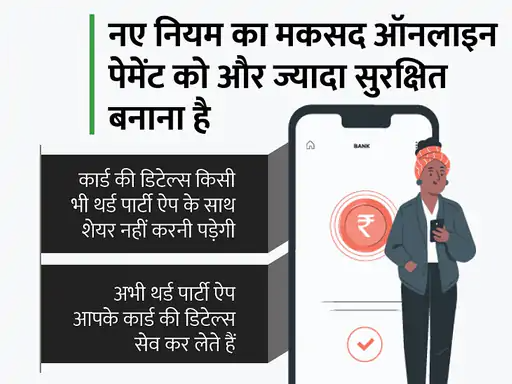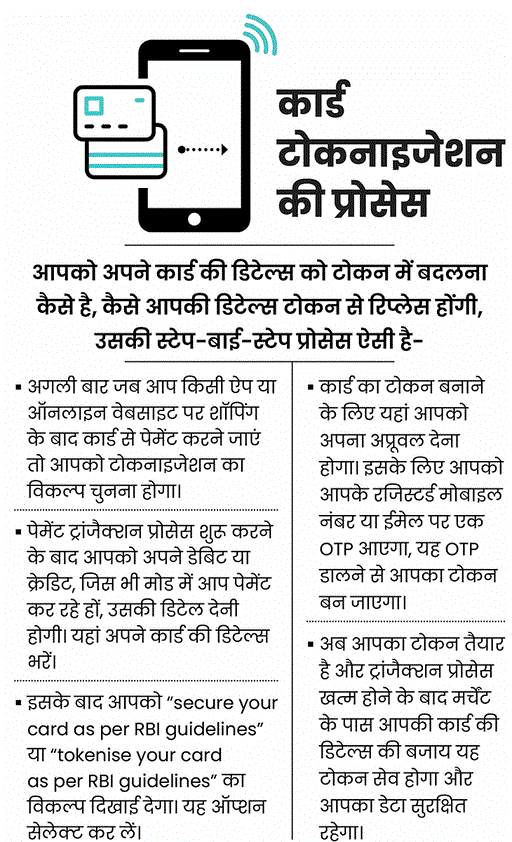Beginning on October 1st, new rules will apply to cardholders who use debit and credit cards. The Reserve Bank of India’s (RBI) Card-on-File Tokenization (CoF Card Tokenization) rule went into force on October 1st. The ability to hold consumer card information will no longer be available to merchants, payment aggregators, or payment gateways. The tokenization method is being implemented to stop online financial fraud.
According to RBI, once the tokenization system is in place, cardholders’ payment experiences will be enhanced, debit and credit card transactions will be more secure than they were, and online fraud will also be reduced. Banks have begun sending letters to cardholders about tokenizing their cards. In this instance, we’ll explain what card tokenization is and how to go about accomplishing it.
What is a ‘Tokenization’ System?
Sensitive information on credit and debit cards is replaced through the tokenization process with a special token. You won’t need to give any third-party app your card information after tokenization. This is not the case anymore; in order to make future transactions simpler, you must keep the card information whenever you order meals online or book a cab.
After saving the card information, all that is needed to complete the next transaction is to input the three-digit CVV and OTP numbers, and the payment is completed in a matter of seconds. However, because of this, there is a chance of fraud. The card data is obtained by the hacker if the website or app is compromised. The tokenization system is an exception.
Your card’s token throughout the tokenization process will vary depending on the merchant. Following tokenization, you will only see the last four digits of your card number the next time you make a purchase through that website or app, allowing you to click on the transaction.
Why is the new system being introduced?
You are prompted to store card information on a lot of shopping websites and apps. This makes buying easier. Your money, however, could be taken if this website or app is compromised. The purchase will go through without a hitch if your data is replaced with a token number, but there will be no chance of data theft.
Can one token be used everywhere?
No, a merchant’s Register Token cannot be used with another merchant. Each card saved by a merchant will be connected to a special token. For instance, if you use your HDFC Bank credit card on Flipkart, Amazon would use a separate token for the same card. In other words, your tokens will be more valuable the more merchants you have.
|
|
 YouTube YouTube |
Click Here |
 Facebook Page Facebook Page |
Click Here |
 Instagram Instagram |
Click Here |
 Telegram Channel Telegram Channel |
Click Here |
 Google News Google News |
Click Here |
 Twitter Twitter |
Click Here |





